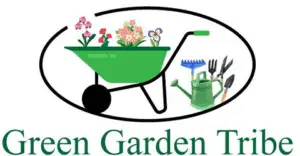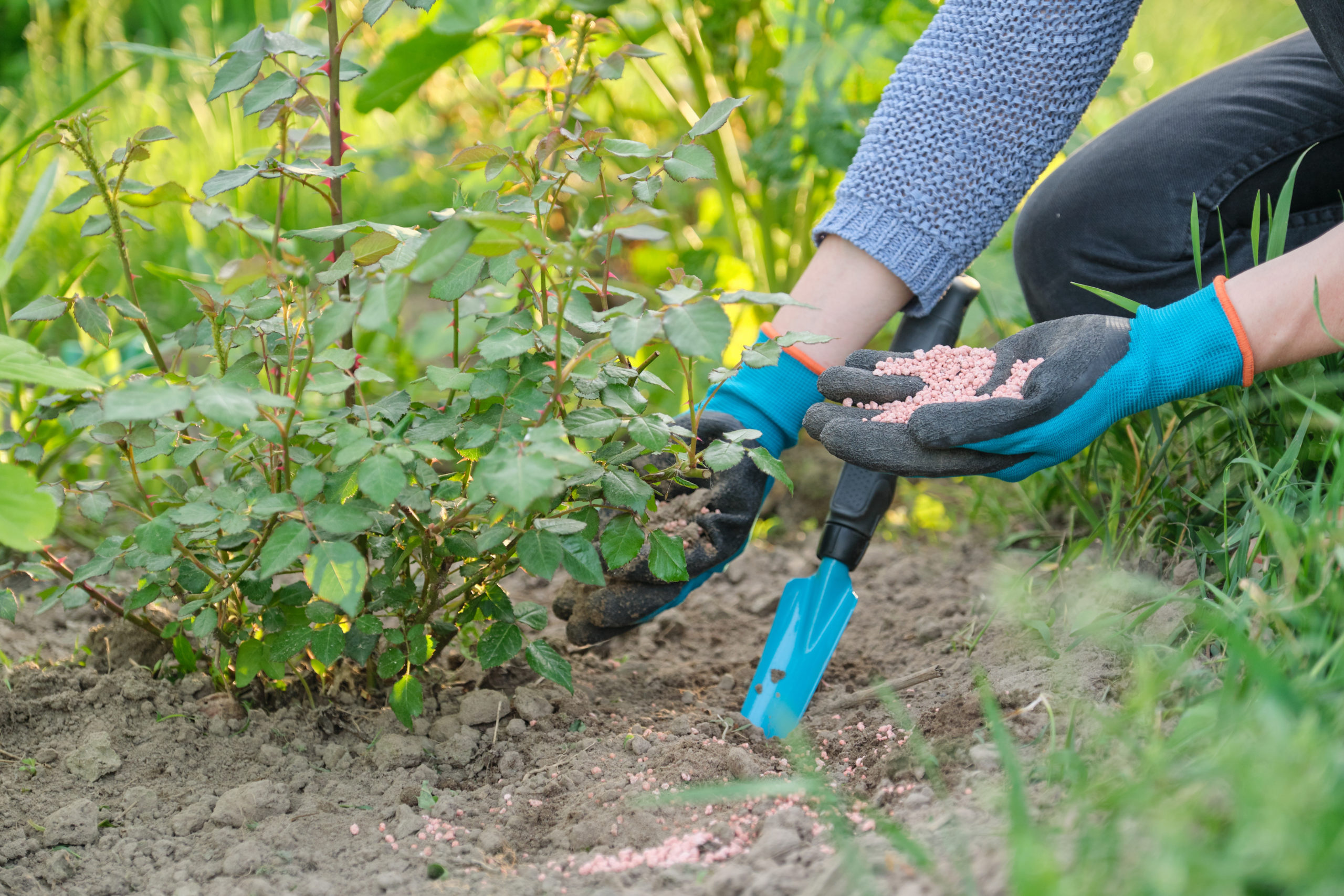There are all-purpose fertilizers and general use fertilizers. There are also fertilizers for specific plants (tomatoes, fruits, vegetables, and flowers).
The rose fertilizer is specially made to make roses bloom faster. Today, many new gardeners are asking, ‘can I use rose fertilizer on vegetables?’
The rose fertilizer is one of the most popular on the market. It contains the right amounts of Nitrogen, Phosphorus and Potassium – NPK combination of 4:3:2 – not just perfect for roses but ideal for your veggies. It also includes magnesium, calcium, copper, zinc, iron, boron, cobalt, and water-soluble magnesium. This Rose Tone fertilizer is a pure bonus for your veggies – but only after their early stages of growth.
What is the Rose Fertilizer?
The Rose Tone is one of the most popular rose fertilizers in the market. This fertilizer with an NPK ratio of 4:3:2 contains the following macro-nutrients used by plants:
- Nitrogen (4%)
Nitrogen stimulates the growth of robust and healthy leaves. Plants need nitrogen so their roots, stems, flowers, and fruits will grow well. The green color of plants that are necessary for protein formation comes from nitrogen.
Plants that are lacking in nitrogen will turn pale green, and their leaves will turn yellow. On the other hand, too much nitrogen will kill your plants.
- Phosphorous (3%)
Phosphorous stimulates the growth of sturdy and healthy roots. Your plants need phosphorous for cell division and to form roots, flowers, and fruits. Plants with a phosphorous deficiency can result in stunted growth, soft flower stems, and leaf drop. Also, their sprouts will not open.
- Potassium (2%)
Plants need potassium or potash to recover better when hit by a disease, pests, or harsh weather conditions. Insufficient potassium shows up in many ways, including stunted growth, delicate flower stems, and yellowish lower leaves.
The Rose Tone rose fertilizer also includes magnesium, calcium, copper, zinc. Iron, boron, cobalt, and water-soluble magnesium.
When Should You Use Rose Fertilizer on Your Vegetables?
The Rose Tone fertilizer comes with an NPK combination of 4:3:2. Some rose fertilizers come with higher NPK combinations.
Experts recommend one pound of 10:10:10 fertilizer per 100 feet and two pounds of 5:10:10 fertilizer in the same area. It means you will need to apply a lot of rose fertilizer to your garden to meet this NPK combination.
It is, therefore, recommended not to apply rose fertilizers on your vegetables during the early stages of their growth because this is the time your vegetables need a lot of nutrients for good root development.
You can ensure proper growth for your vegetable plants by appropriately preparing the soil before planting and during the first stages of development.
Do this by adding enough fertilizer, compost, mulching and adequate watering to prevent an invasion of weeds,
Rose fertilizer acts as a bonus fertilizer for your vegetables. You can apply it to your vegetables throughout the growing season once they already have adequate nutrients during the early growth stages.
Rose fertilizer contains low Nitrogen levels, so unlike most synthetic and organic fertilizers, there is no risk of our plants being burned.
For Optimum Growth, Plants Need:
Light, nutrients, and moisture to grow healthy and strong:
- Light is provided by the sun
- Plant nutrients are provided by fertilizers, manure, or compose
- Moisture is supplied by irrigation or rainwater
If your vegetable plants are not growing well, one of the reasons is a possible lack of the right amount of nutrients. Vegetable plants that lack nutrients need fertilizers.
A rose fertilizer, like the Rose Tone fertilizer, comes with an NPK (Nitrogen, Phosphorous, and Potassium) combination of 4:3:2 that is ideal for roses.
Luckily, this NPK combination is also appropriate for your vegetables with the right amounts, so they will benefit a lot from rose fertilizer.
Types of Rose Fertilizer
Rose fertilizer is available in various forms. The type of rose fertilizer to use on your plants depends on your plants and their soil condition. Your choice is also dependent on the climate and on how much time you have for your garden.
- Granular Rose Fertilizer
Granular fertilizer looks like grains of sand and, therefore, appear similar to the soil they are supplementing. Granular rose fertilizer is scattered under plants all over the ground, and the earth is then scratched with the blade of a trowel.
Granular rose fertilizer is long-lasting and only needs to be applied every 4-6 weeks.
- Spray Rose Fertilizer
Spray rose fertilizer is dispensed using a spray bottle or a hose-end sprayer. Plants are coated with spray fertilizer, with its nutrients passing through the leaves and not through the roots of the plant.
Spray rose fertilizer is applied every two weeks.
- Liquid Rose Fertilizer
Liquid fertilizers are dissolved in water and poured around the base of your plants. They make your plants green much faster than when you use granular fertilizers.
Liquid rose fertilizers should be applied every one to two weeks.
- Spike Rose Fertilizer
Use a hammer to drive spike fertilizer on compacted soil. You can use your fingers to push spike fertilizer into loose soil. This fertilizer is placed around the base of the plant. The spikes release their fertilizers slowly into the ground.
Spike fertilizers are replaced only every two months.
Factors to Consider when Buying Rose Fertilizer
Here are the things you need to look into before buying rose fertilizer:
- NPK Ratio
Rose fertilizer producers consider the middle number of the phosphorus content of the fertilizer as the most important because phosphorous stimulates root development and flowering.
When the nitrogen content of the fertilizer is higher than its phosphorus and potassium levels, you will have lush foliage with fewer blooms.
- Choose between Organic or Non-Organic Rose Fertilizer
Organic fertilizers have lower NPK ratios than non-organic or chemical fertilizers. Non-organic fertilizers contain a more significant number of microbes for better absorption. Microbes also prevent toxic runoff.
Organic granular fertilizers are absorbed by plants slower than non-organic granular fertilizers.
- Ease of Use
Spike fertilizers are the easiest to use because they are simply hammered or pushed around the plant. They also last the longest.
Granular fertilizers come in as the second rose fertilizer to use because they are simply scooped out of the bag and applied to the plants. Granular fertilizers do not require any mixing. They are also only applied every 4-6 weeks.
Spray or liquid rose fertilizers are the most difficult to apply because they need to be mixed. They also require more frequent applications, either once a week or every two weeks.
Understanding Fertilizer Numbers
Labels of commercial fertilizers always come with three numbers. These numbers represent the nutrient content of the fertilizer in percentages:
- The first number refers to the nitrogen content of the fertilizer
- The second number indicates the phosphate content of the fertilizer
- The third number shows the potash (potassium) content of the fertilizer
The percentage ratio of every fertilizer benefits the specific plants for which they are made.
Final Thoughts
The only difference between fertilizers designed for specific plants and other fertilizers is the NPK ratio. Meaning the only difference between rose fertilizer and fertilizers explicitly made for vegetables is the NPK ratio.
If you want to use rose fertilizer on your vegetables, adjust the amounts. If the type of rose fertilizer you have is too high for your vegetables, dilute the fertilizer.
Vegetables need higher quantities of certain nutrients during their early stages of growth. The soils of your vegetable plants also need to have enough organic matter, pH levels appropriate for vegetables and should be well-drained.
It is recommended that you use fertilizers specific to the type of plants you are growing wherever possible. However, you can use rose fertilizer for vegetables because fertilizers for flowers, such as rose fertilizer, will not cause any damage to your crops.
Jenny Marie
Tribal Writer
Edited By
Patricia Godwin

